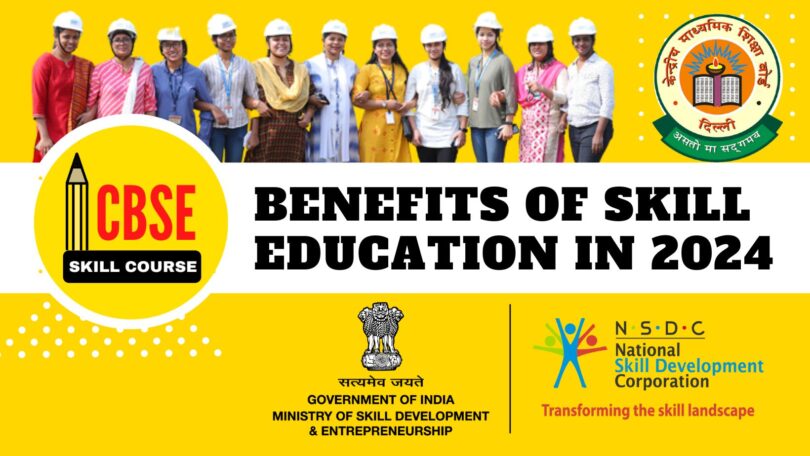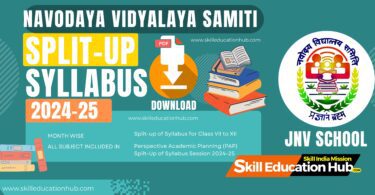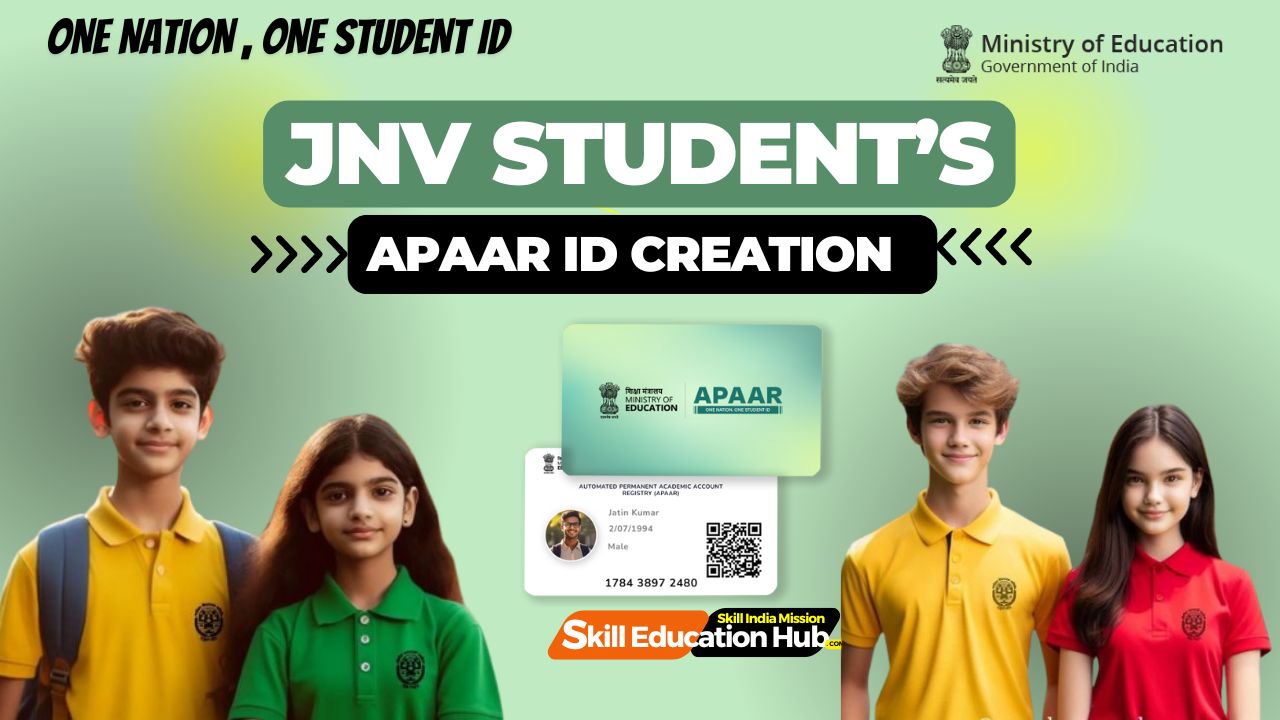In 2024, skill education continues to play a crucial role in personal and professional development, addressing the evolving needs of individuals and the workforce. Here are some benefits of skill education in 2024
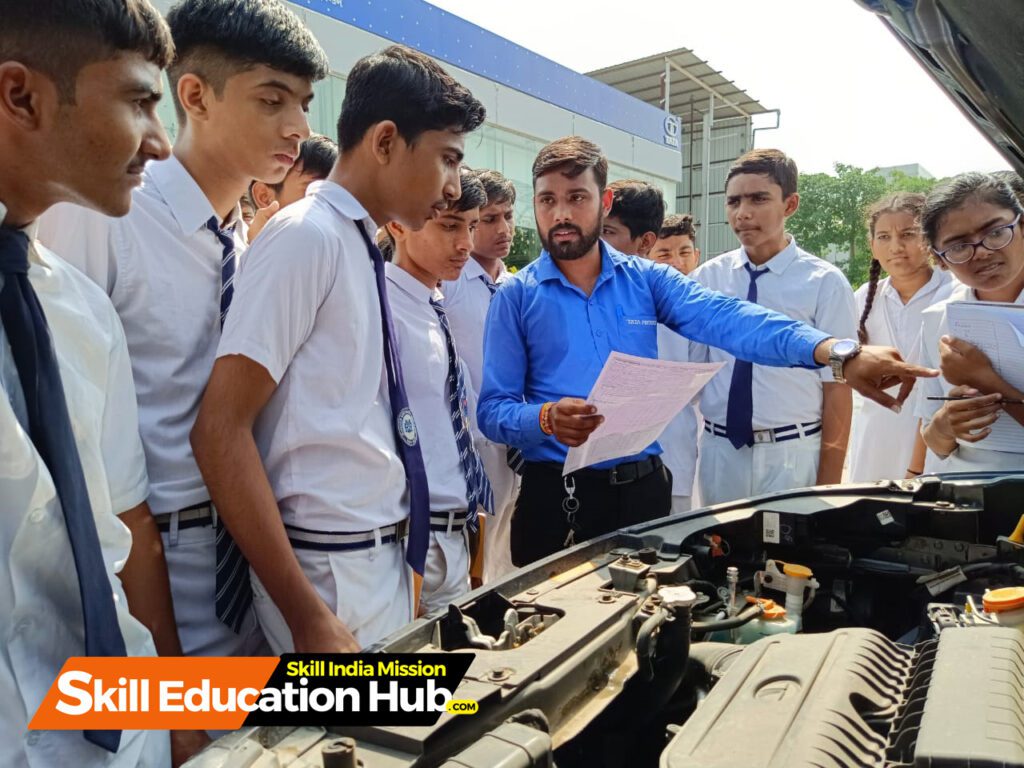
- Relevance to the Job Market:
- Skill education in schools ensures that students acquire practical, job-relevant skills that are aligned with the needs of the current job market, enhancing their employability.
- CBSE’s efforts in integrating skill education aim to produce well-rounded individuals who are not only academically competent but also equipped with the practical skills necessary for success in their chosen careers. The board continues to evolve its approach to education to meet the changing demands of the modern workforce.
- Critical Thinking and Problem-Solving:
- Skill education emphasizes critical thinking and problem-solving skills, fostering a mindset that enables students to approach challenges creatively and analytically.
- Technological Literacy:
- Integrating skill education in schools helps students become technologically literate, keeping pace with the digital advancements and preparing them for technology-driven careers.
- Real-World Application:
- Skill education provides opportunities for hands-on, real-world application of knowledge, making learning more engaging and applicable to students’ future endeavors.
- Entrepreneurial Skills:
- Schools offering skill education programs encourage the development of entrepreneurial skills, empowering students to think innovatively and potentially pursue entrepreneurial ventures.
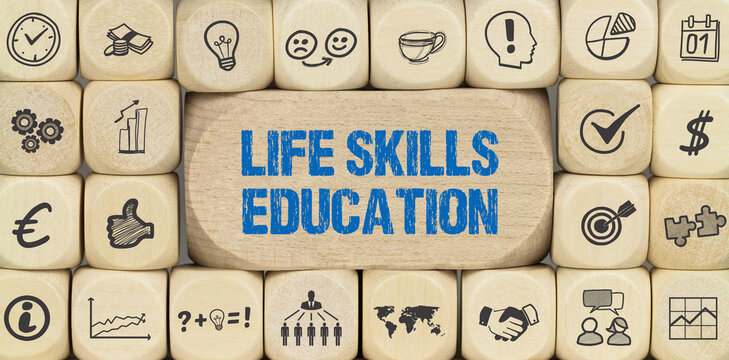
- Customized Learning Paths:
- Skill education allows for personalized learning paths, accommodating different learning styles and individual interests, which can lead to a more engaged and motivated student body.
- Soft Skills Development:
- In addition to technical skills, skill education in schools focuses on soft skills such as communication, collaboration, and teamwork, essential for success in any professional setting.
- Adaptability and Flexibility:
- Students exposed to skill education are better equipped to adapt to change and embrace new opportunities, fostering a mindset of adaptability and flexibility.
- Career Exploration:
- Skill education programs in schools provide students with exposure to various career paths, helping them make informed decisions about their future academic and professional pursuits.
- Global Awareness:
- Skill education promotes global awareness and cultural competence, preparing students to work in diverse environments and contribute to a globalized workforce.
- Preparation for Emerging Industries:
- Schools that integrate skill education stay ahead in preparing students for emerging industries, ensuring that they are ready to meet the demands of evolving job sectors.
- Life Skills Education:
- Beyond career preparation, skill education equips students with essential life skills, such as financial literacy, time management, and decision-making, contributing to their overall well-being.
- Experiential Learning Opportunities:
- Skill education in schools often includes experiential learning opportunities, such as internships, apprenticeships, and industry partnerships, providing students with real-world experiences.
- Increased Engagement and Motivation:
- Skill-based learning engages students by connecting classroom activities to real-world scenarios, leading to increased motivation and enthusiasm for learning.
Life skills education encompasses a broad range of abilities and knowledge that are essential for personal development, effective communication, and successful navigation of various life situations. cbse skill education offers These skills go beyond traditional academic subjects and contribute to an individual’s overall well-being.
SKILL EDUCATION: A New Opportunity for Education and Education for Modern Students
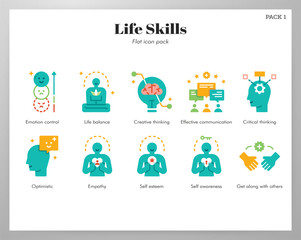
The Central Board of Secondary Education (CBSE) in India has been taking steps to integrate skill education into its curriculum. The aim is to prepare students not only academically but also with practical skills that are relevant to real-world scenarios. Here are some key aspects of CBSE’s skill education:
- Skill Subjects in the Curriculum:
- CBSE has introduced skill subjects as part of its curriculum, offering students the opportunity to choose subjects that align with their interests and career aspirations.
- Vocational Courses:
- CBSE offers a range of vocational courses that provide practical skills in various fields such as information technology, healthcare, hospitality, agriculture, business, and more.
- Integration with Academic Subjects:
- The board aims to integrate skill development with academic learning, allowing students to see the practical applications of their knowledge and fostering a more holistic approach to education.
- Practical Training and Internships:
- CBSE encourages students to participate in practical training, internships, and hands-on experiences to apply theoretical knowledge in real-world situations. This helps in bridging the gap between academic learning and practical skills.
- Assessment and Certification:
- Assessment in skill education involves both theoretical and practical evaluations. CBSE provides certification for skill courses, recognizing the achievements of students in acquiring practical skills.
- Collaboration with Industries:
- CBSE collaborates with industries and vocational training institutes to ensure that the skill courses offered align with the requirements of the industry. This helps in preparing students for future employment opportunities.
- Life Skills Education:
- CBSE emphasizes life skills education as part of its curriculum, covering essential skills such as communication, critical thinking, problem-solving, and emotional intelligence.
- Entrepreneurship Development:
- CBSE promotes entrepreneurship education, encouraging students to develop an entrepreneurial mindset and providing them with the knowledge and skills to start and manage their own ventures.
- Flexibility in Subject Choices:
- The curriculum offers flexibility in subject choices, allowing students to pursue a combination of academic and skill-based subjects based on their interests and career goals.
- Inclusive Education:
- CBSE strives to make skill education inclusive, ensuring that students with diverse abilities and backgrounds have access to educational opportunities that cater to their needs.
Skills Education and the 21st Century Workforce
By incorporating skill education into schools, educators can better prepare students for the complexities of the 21st-century workforce, fostering well-rounded individuals capable of navigating diverse challenges and contributing meaningfully to society.

